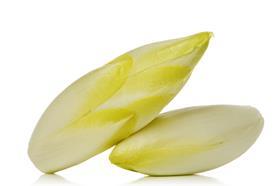
Belgium has traditionally been a highly important supplier of a wide range of fresh produce to the UK market, and although that position has been shaken a little in recent times, there are signs it is bouncing back as a key export destination.
According to Jan Engelen, marketing manager at Veiling Hoogstraten, the UK is still attractive, but location, production and competition from the Netherlands is making the game difficult. But he stresses: “We try to find the holes and the opportunities to strengthen our business in the UK.”
Jo Lambrecht, commercial director at BelOrta, adds that the UK market is “resdiscovering” Belgian production, particularly speciality tomatoes, bell peppers, lettuce, pears and berries. “In the last two to three years we have developed some new business lines, both in retail and foodservice. We are also keen to introduce our Belgian endives to the UK. We strongly believe the UK market has potential for this fantastic product.”
Both companies are investing in infrastructure this year, with Veiling Hoogstraten currently in the process of building a new €8 million packhouse that is set to be in operation from spring 2016. BelOrta points out that around its HQ in Sint-Katelijne-Waver, a new 60ha fresh produce region is being developed. “Since Sint-Katelijne-Waver is a central place in Europe, it is already and will become an important hub for a lot of important fruit and vegetable players in Europe.”
Much like in the UK, this is a time of change in Belgium, with suppliers jostling for position in the new world order. In late May it was announced that fruit auction Veiling Haspengouw and Univeg are looking to develop closer commercial ties.
The proposed deal will see Univeg set to take a stake in two of VeilingHaspengouw’s subsidiaries, marketing division H‐Fruit and pear packer H‐Ppack. Under the revised arrangement, Veiling Haspengouw will continue as a co-operative, but will have access to Univeg’s broad commercial and distribution network, the aim being to guarantee sustainable returns to growers by accessing as many new and emerging markets as possible.
It was the latest in a string of moves involving Belgian giant Univeg, which also heard recently that the EC would not oppose its proposed integration with Greenyard Foods and Peatinvest.
It all shapes up to be a changing time in the supply market, and the need to boost exports is brought into sharper focus with the release of new research by GfK Benelux showing that Belgian consumers bought almost six per cent fewer fruit and vegetables last year compared with 2013.
Per capita spending on fruit and vegetables fell by a greater percentage in Belgium – 5.8 per cent –than in the food market globally (0.8 per cent), according to the survey of 5,000 Belgian families.



